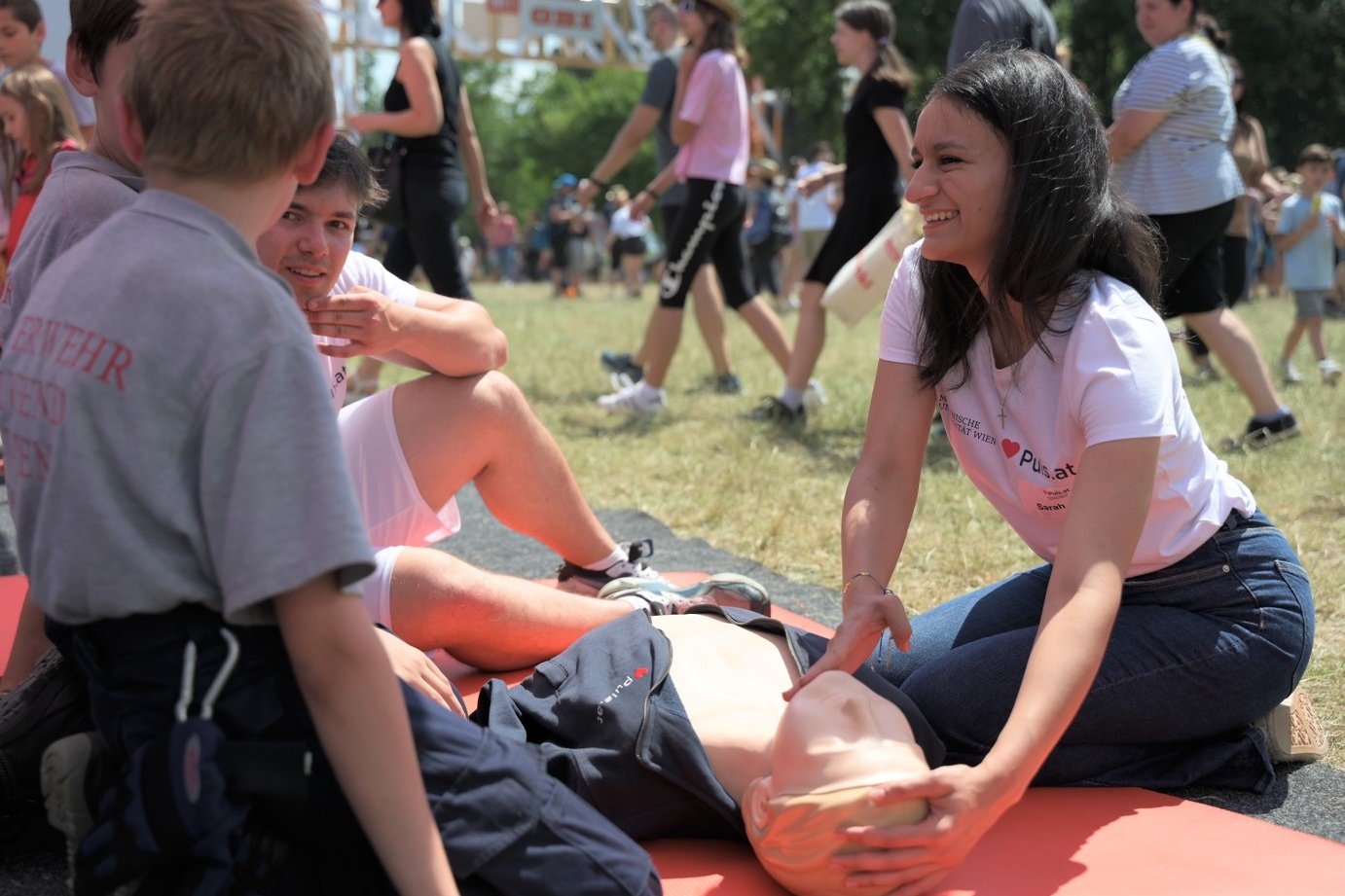
(Vienna, 16 October 2023) For more than 20 years, the Medical University of Vienna has offered the elective "Learning by Teaching Life-Saving Immediate Measures", which is run in collaboration with the Viennese association PULS. Students are not only trained as first aiders in case of cardiac arrest, but also teach the Viennese population basic resuscitation afterwards.
In Vienna, there is a sophisticated system for the treatment of sudden cardiac death, which consists of the cooperation of lay first responders, professional first responders, the Vienna Professional Rescue Service and the Vienna hospitals. If a cardiac arrest occurs, the fastest possible help is life-saving, because for every minute without cardiac massage, the chance of survival drops by about 10 percent. If a cardiac problem is also the cause of the situation, a shock using a defibrillator is often necessary.
"A "defi" is now brought to the emergency scene in Vienna in a variety of ways to bridge the time until the rescue arrives. A public "defibrillator network", which also includes converted telephone boxes, is part of the system, as is the police, who carry defibrillators in their patrol cars. However, it is crucial that laypersons start cardiac massage immediately if a person is no longer breathing - and this is where awareness must be created among the population," says Mario Krammel, chief physician of the Vienna Professional Rescue Service and first executive president of the PULS association.
Successful elective course at MedUni Vienna
The Medical University of Vienna also makes a contribution to the aforementioned awareness education: The elective course "Learning by Teaching Life-Saving Immediate Measures", which was launched over 20 years ago by the pioneer of Austrian resuscitation, Fritz Sterz from the Department of Emergency Medicine at MedUni Vienna, trains students from all years in basic resuscitation and then lets them pass on their knowledge to the public under the guidance of experienced trainers: inside the PULS association, they pass on their knowledge to the population - a success story, says Sebastian Schnaubelt from the University Clinic for Emergency Medicine, who took over the management of the elective a few years ago: "The course has developed into a fixed component of the "survival network". In Vienna, it is now quite natural for students of the Medical University of Vienna to be present at public events such as the Donauinselfest to teach people resuscitation. But courses in schools, with the Vienna Police, migrant:ing people, or people with visual or hearing impairments are also part of the concept."
With an average of 100 students per academic year, more than 2,000 "multipliers" have been trained so far, and at various events tens of thousands of people have been made aware of the importance of taking action quickly instead of simply looking away in an emergency.
"The students are eager to get started, and some get a taste for it and continue to volunteer beyond the elective. In addition, with several tutors and a demonstrator, the Medical University of Vienna ensures that the quality of the training courses always remains at the highest level," Schnaubelt is pleased to say. "We also see the project as a beacon in the Austrian resuscitation landscape. A national expansion to other universities would be desirable."
On 16 October, which is celebrated internationally every year as "World Restart A Heart Day", you can experience the students' commitment live: they will be training lay people in resuscitation and educating them about sudden cardiac death throughout the day at Vienna's Donauzentrum.